Related Research Articles

Isaac Stern was an American violinist.
A concerto is, from the late Baroque era, mostly understood as an instrumental composition, written for one or more soloists accompanied by an orchestra or other ensemble. The typical three-movement structure, a slow movement preceded and followed by fast movements, became a standard from the early 18th century.
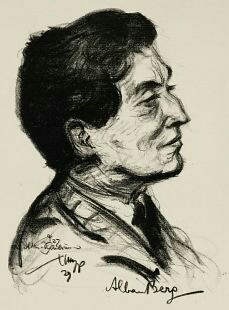
Alban Berg's Violin Concerto was written in 1935. It is probably Berg's best-known and most frequently performed piece. In it, Berg sought to reconcile diatonicism and dodecaphony. The work was commissioned by Louis Krasner, and dedicated by Berg to "the memory of an angel". It was the last work he completed. Krasner performed the solo part in the premiere at the Palau de la Música Catalana, Barcelona, in April 1936, four months after the composer's death.
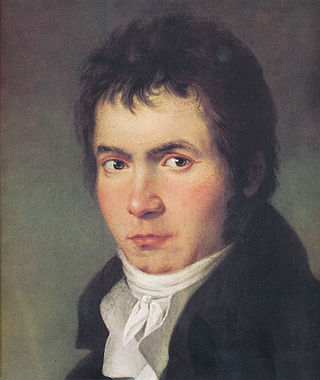
The Violin Concerto in D major, Op. 61, was written by Ludwig van Beethoven in 1806. Its first performance by Franz Clement was unsuccessful and for some decades the work languished in obscurity, until revived in 1844 by the then 12-year-old violinist Joseph Joachim with the orchestra of the London Philharmonic Society conducted by Felix Mendelssohn. Joachim would later claim it to be the "greatest" German violin concerto. Since then it has become one of the best-known and regularly performed violin concertos.

The Violin Concerto in D major, Op. 77, was composed by Johannes Brahms in 1878 and dedicated to his friend, the violinist Joseph Joachim. It is Brahms's only violin concerto, and, according to Joachim, one of the four great German violin concerti:
The Germans have four violin concertos. The greatest, most uncompromising is Beethoven's. The one by Brahms vies with it in seriousness. The richest, the most seductive, was written by Max Bruch. But the most inward, the heart's jewel, is Mendelssohn's.
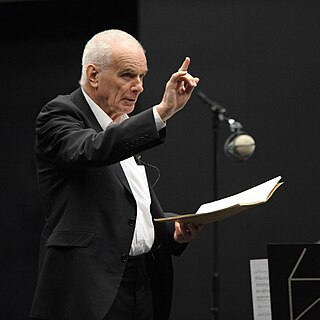
Sir Peter Maxwell Davies was an English composer and conductor, who in 2004 was made Master of the Queen's Music.
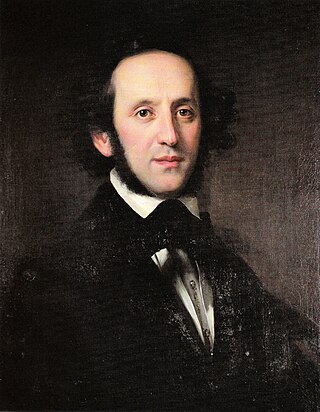
Felix Mendelssohn's Violin Concerto in E minor, Op. 64, MWV O 14, is his last concerto. Well received at its premiere, it has remained among the most prominent and highly-regarded violin concertos. It holds a central place in the violin repertoire and has developed a reputation as an essential concerto for all aspiring concert violinists to master, and usually one of the first Romantic era concertos they learn. A typical performance lasts just under half an hour.
Béla Bartók's Violin Concerto No. 2, Sz. 112, BB 117 was written in 1937–38. During the composer's life, it was known simply as his Violin Concerto. His other violin concerto, Violin Concerto No. 1, Sz. 36, BB 48a, was written in the years 1907–1908, but only published in 1956, after the composer's death, as "Violin Concerto No. 1, Op. posth."

The Violin Concerto in D minor, Op. 8, is a concertante work written from 1881 to 1882 by the German composer Richard Strauss.
Samuel Barber completed his Violin Concerto, Op. 14, in 1939. It is a work in three movements, lasting about 22 minutes.
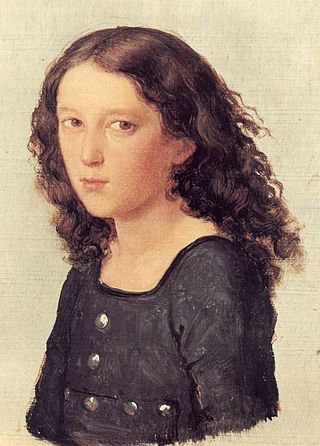
The Concerto for Violin and String Orchestra in D minor, MWV O 3, was composed by Felix Mendelssohn at the age of thirteen. It has three movements, Allegro–Andante–Allegro, and performance duration is approximately 22 minutes.
The Melos Ensemble is a group of musicians who started in 1950 in London to play chamber music in mixed instrumentation of string instruments, wind instruments and others. Benjamin Britten composed the chamber music for his War Requiem for the Melos Ensemble and conducted the group in the first performance in Coventry.
Ivor McMahon (1924–1972) was an English violinist. He played with notable orchestras including the Philharmonia Orchestra and the English Chamber Orchestra and is best known for playing second violin in the Melos Ensemble.

The Symphony No. 2 by Peter Maxwell Davies was commissioned by the Boston Symphony Orchestra in celebration of its centenary, and was composed in 1980. Seiji Ozawa conducted the world premiere with the BSO on 26 February 1981 at Symphony Hall, Boston. The same forces performed the New York premiere on 4 March that year at Carnegie Hall.

The Symphony No. 3 by Peter Maxwell Davies was composed in 1984 on a commission from the BBC Philharmonic, who gave the world premiere on 19 February 1985, at the Free Trade Hall in Manchester, with Edward Downes conducting.

The Symphony No. 4 by Peter Maxwell Davies was commissioned for the Scottish Chamber Orchestra by Christian Salvesen plc and composed in 1989. It is dedicated to the memory of the violinist John Tunnell, who had been leader of the orchestra, and was premiered at the Royal Albert Hall on a BBC Promenade Concert on 10 September 1989, with the composer conducting the Scottish Chamber Orchestra.

The Symphony No. 5 was composed by Peter Maxwell Davies in 1994 on commission from the Philharmonia Orchestra, who gave the world premiere under the composer's direction at a BBC Promenade concert on 9 August 1994 at the Royal Albert Hall in London.

The Concerto for Trumpet and Orchestra is a composition for trumpet solo and orchestra by the British composer Peter Maxwell Davies. The work was commissioned by the Philharmonia Orchestra for its then principal trumpeter John Wallace. It was given its world premiere by Wallace and the Philharmonia Orchestra under the conductor Giuseppe Sinopoli in Hiroshima on 21 September 1988.
The Violin Concerto is a composition for solo violin and chamber orchestra by the American composer Ned Rorem. The work was commissioned by the Springfield Symphony Orchestra for the violinist Jaime Laredo and composed in 1984. It was first performed by Laredo and the Springfield Symphony Orchestra conducted by Robert Gutter in the Symphony Hall, Springfield, on March 30, 1985.
Mieczysław Weinberg composed his Violin Concerto in G minor, Op. 67, in 1959. The violin concerto was premiered and subsequently recorded in Moscow by soloist Leonid Kogan in 1961, but it was not until the 21st century that it was first performed in Germany, the U.S. and other countries.
References
- 1 2 3 Davies, Peter Maxwell (1986). "Violin Concerto". G. Schirmer Inc. Retrieved 17 September 2017.
- ↑ Moss, Stephen (19 June 2004). "Sounds and silence". The Guardian . Retrieved 17 September 2017.
- ↑ Whittall, Arnold (February 1988). "Dutilleux & Maxwell Davies Violin Concertos". Gramophone . Retrieved 17 September 2017.
- ↑ Henahan, Donal (4 May 1988). "Review/Music; Stern Plays Maxwell Davies Concerto". The New York Times . Retrieved 17 September 2017.